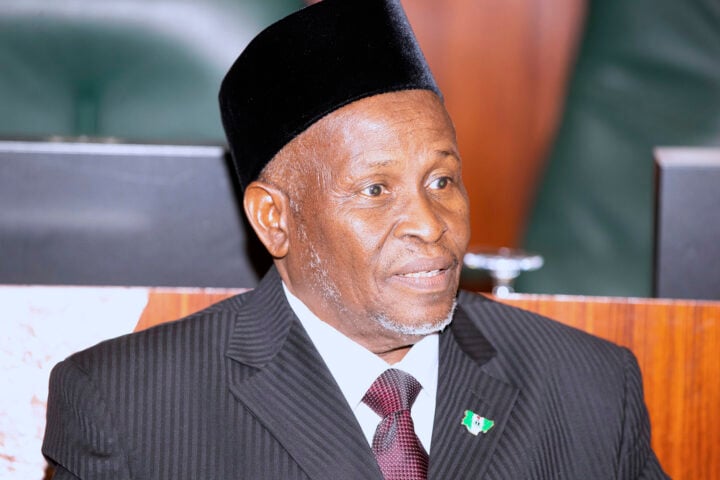PRESIDENT BUHARI PRESIDES OVER POLICY RETREAT 11A-11C. The New Chief Justice of Nigeria (CJN), Hon Justice Tanko Muhammad during his swearing-in at the Council Chambers at the State House Abuja PHOTO; SUNDAY AGHAEZE. JULY 24 2019
Ibrahim Muhammad, chief justice of Nigeria (CJN), has asked that the constitution be amended to mandate the National Judicial Council (NJC) to fix and review the salaries of judges every four years.
Muhammad made this submission in the paper he presented as recommendations of the judiciary at the national public hearing organised by the senate committee on review of the 1999 Constitution.
The event held on Thursday at the Africa hall of the International Conference Centre, Abuja.
In the 17-page paper titled “Input by the Judiciary to the Proposed Alteration to the 1999 Constitution (As Amended)’’, the CJN proposed 45 constitutional amendments for the judiciary.
Advertisement
According to a statement by Ahuraka Isah, Muhammad’s spokesperson, in item 38, the CJN wants Part 1 of the Third Schedule Paragraph 21 to the Constitution to be altered to include sub-paragraph ‘h’ to the effect that NJC should “fix, in conjunction with salaries and wages commission, salaries and other emoluments of judicial staff; in the case of judicial officers, to review such salaries no later than four years.”
Presently, Section 84 (1) of the constitution states that the Revenue Mobilisation Allocation and Fiscal Commission (RMAFC) is responsible for reviewing judges’ salaries.
This was made possible by the enactment of the ‘Certain Political, Public and Judicial Office Holders (Salaries and Allowances, etc.) (Amendment) Act, 2008′, which took effect on February 1, 2007.
Advertisement
The CJN said judges’ salaries have remained the same for about 13 years because the Act has not been reviewed since 2008.
He also asked for the constitution to be amended for the NJC secretary position to be “at par with that of the clerk of the national assembly”.
Muhammad also proposed that the new amendment should categorically state that the CJN is the head of the judiciary of the federation, just as he called for the supreme court bench to be reduced from 21 to 16.
Furthermore, the CJN wants persons to be appointed as justices of the supreme court should have not less than 25 years of post-call to bar experience
Advertisement
“All the appeals from the court of appeal to the supreme court should be by leave of the supreme court and the application for leave can be determined by three justices of the apex court sitting in the chamber,” the statement reads.
“He called for the number of the court of appeal Justices pegged at 49 in the constitution under Section 237 be amended now to no less than 100 justices.
“The judiciary is now to exercise control over the Code of Conduct Tribunal (CCT), as the Federal Judicial Service Commission (FJSC) is to advice the NJC in nominating persons for appointment as the chairman and members of the CCT.”
Advertisement






